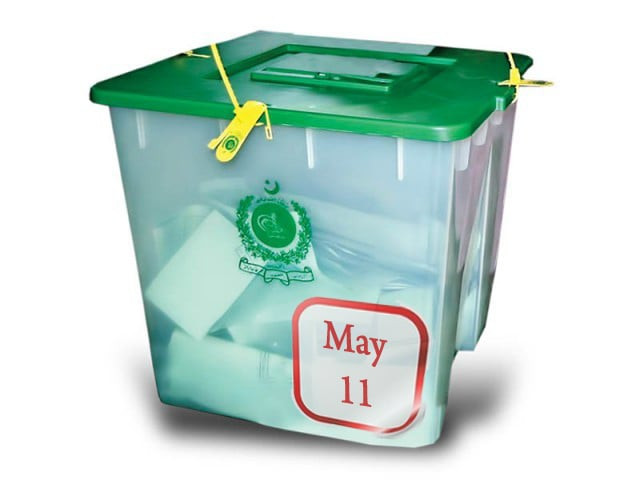Elections and the security situation
It was expected that the caretakers will focus on their primary task in a more coordinated manner.

Leaders of few political parties are carrying out successful campaigns in almost every part of Punjab but the liberal parties are under threat. PHOTO: EXPRESS/FILE
More worryingly, Pakistan’s federation is also under attack. Much of the violence is taking place outside the populous province of Punjab, creating an impression in the smaller provinces that they remain insecure and denied of a free environment to elect their representatives. Leaders of political parties are carrying out successful campaigns in almost every part of Punjab but the liberal parties under threat are scared to hold even corner meetings. In the post-election scenario, it is unclear how far the elections would be taken as fully legitimate by the parties and the public opinion from the smaller provinces.

The response of the caretaker governments at the centre and the provinces has been less than satisfactory. It was only after the escalation of violence that the caretaker prime minister addressed the nation and promised protection and crisis management. However, the day he expressed this intent, several attacks were carried out by militants. It would be unfair to hold the interim governments fully responsible for the chaos in the country. Violent extremism is a deeper issue and terrorism has afflicted Pakistan for over a decade now. Nevertheless, it was expected that the caretakers would have focused on their primary task in a more coordinated manner.
In this regard, the statements coming from the Election Commission of Pakistan (ECP) and the interim government are revealing. With days to go before the elections, the two seemed to be engaged in a bureaucratic wrangle. According to reports last week, the ECP declined the caretaker prime minister’s decision to place the administrative control of the National Crisis Management Cell (NCMC), presently working under the interior ministry, at its disposal. Thus far, the NCMC, mandated to coordinate between all law-enforcement agencies, has not been all too effective. The chief election commissioner, citing a Supreme Court judgment, reiterated that the chief secretaries of the provinces and the chief commissioner Islamabad are responsible for maintaining law and order.
That the executive authorities are in charge of security is well known and this is how it should be. But in the absence of parliamentary oversight, perhaps the ECP could play a more proactive role. If it does not want to take charge of the NCMC, it should ensure that there is regular monitoring of it during the election season. The NCMC, for much of its existence, has been just another bureaucratic outfit. Its work and achievements remain shrouded in mystery. All law-enforcement agencies need to be working closely with it and there is an urgent need of leadership.
Similarly, in the provinces, all intelligence agencies should coordinate with one another to seek information on the plans and movements of militants. The public needs to be taken into confidence and there should be an effective means of seeking information through safe helplines about the likely attacks of the militants. In 2013, the people of Pakistan will look towards the civilian caretakers and the military to implement their assurances. The sensitive polling stations have already been identified by the authorities and it is time to seek the military’s assistance to provide a fool-proof cover to these areas so that Pakistanis can elect their new government. Despite the absence of a level playing field for all political parties, the caretakers and the executive agencies can still rescue the uneven election process. They must not fail the nation which has struggled for democracy for much of its existence.
Published in The Express Tribune, May 7th, 2013.















COMMENTS
Comments are moderated and generally will be posted if they are on-topic and not abusive.
For more information, please see our Comments FAQ